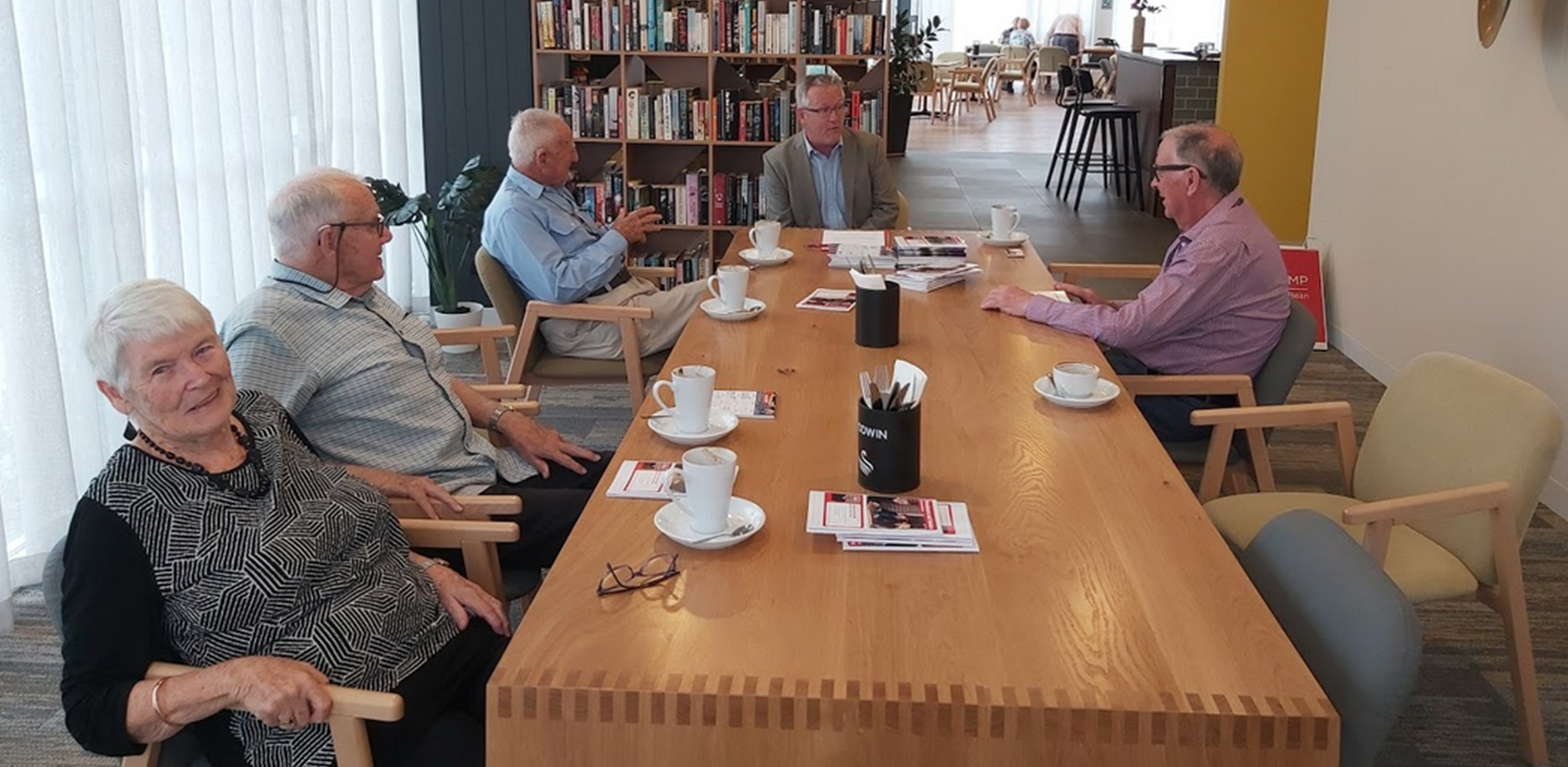The Aged Care Royal Commission report released recently, laid bare the significant issues in residential and home aged care in Australia.
Everyone in our community deserves to be able to spend their later years in the comfort and support of quality aged care services. Unfortunately this is not the reality for many of the over 1.3 million Australians, including 15,000 Canberrans, who access aged care services.
I sat down with Shadow Minister for Senior Australians and Aged Care Services, Clare O’Neil, to discuss the aged care sector and what needs to be done to fix the systemic problems in aged care.
David - Can you explain the findings of the Aged Care Royal Commission final report?
Clare - The Aged Care Royal Commission highlighted awful problems that exist across the aged care sector in Australia. Examples of mistreatment in residential care where shocking. It is no wonder that many Australians want to choose to stay in their homes. Unfortunately, older Australians are literally waiting years for appropriate Home Care packages.
The Royal Commission built a comprehensive roadmap for reform, but the government’s aged care response falls way short. The government needed to address fundamental issues about the way the sector works, but has missed a generational chance to reform the sector.
David - What is happening with the workforce in aged care?
Clare - We have an aged care workforce that is profoundly understaffed, underpaid and lacking the training required to perform the tasks to care our loved ones with dignity and respect.
Aged care workers are some of our lowest paid workers. The average aged care worker is only getting $22 per hour. That level of pay devalues the workers and devalues the work. To attract the 700,000 extra workers needed in the sector by 2050 pay and conditions needs attention.
How does Scott Morrison think his aged care crisis is going to get resolved when aged care workers are some of the worst paid people in the Australian economy? These workers undertake complex and important work every day. It’s emotionally very difficult. And these workers get paid about the same as a person stacking shelves in a supermarket.
Studies have suggested four in 10 aged care workers are planning to leave the sector over the coming decade. The Productivity Commission says we need to recruit 700,000 additional workers into aged care by 2050. How in the hell is that going to happen when aged care workers are some of the worst paid people in the Australian economy. They do complex, difficult work and deserve to be properly paid for it.
The Royal Commission made a clear recommendation that the Morrison Government support pay increases for workers in the Fair Work Commission, but the government has refused to commit to this. The workforce complacency of this budget is breathtaking.
David - What needs to be done to make the aged care system work?
Clare - While some measures in the Budget are welcome, we need real reform–not just more money going to industry and a regulator that have failed older Australians. It seems that funding will be going into the pockets of providers and not tied to patient care. This is a disappointing missed opportunity.
The transparency problem has not been addressed. There needs to be public reporting on each aged care provider so that Australians know who is meeting the mark and who is not.
David - What is happening with Home Care packages at the moment?
Clare - The Royal Commission recommended that the home care wait list be cleared by the end of 2021, yet the government is not planning to clear the home care wait list at all. This is the festering sore of aged care in Australia. There are 100,000 Australians who have been told they need help at home but the government makes them wait - sometimes for years - to get it. 27,278 Australians tragically died over the last two and half years waiting for a home care package.
The government has promised 80,000 additional home care packages over the coming two years when the wait list today is nearly 100,000 strong and thousands more ageing citizens will request a package over the next four years.
David - What do you make of the Morrison Government’s response to the Aged Care Royal Commission?
Clare - Dozens of Royal Commission recommendations are ignored with absurd bureaucratic doublespeak.
Workforce wages and remuneration, better professional development, a nutrition contingent funding boost, minimum staffing levels, guaranteed nurses 24/7, civil penalties for duty breaches – so many recommendations were cast aside, fobbed off and left unanswered.
Scott Morrison must explain why he has refused to comprehensively respond to the Royal Commission that he called.
David - What do you make of the Government's Budget response?
Clare - Scott Morrison is spending $3.2 billion on increasing the basic daily fee supplement for residential providers but doing nothing to ensure this extra money goes to nutrition, better food and extra care for our frailest Australians. Two thirds of aged care residents are malnourished or at risk of malnourishment. That’s thousands of older Australians who are starving while under the care of government. It is the emergency within the crisis.
Scott Morrison’s answer is a $3.2 billion dollar gift to providers, with nothing to require that it be spend on nutritious food instead of an another executive office suite or a Maserati for the CEO.
Scott Morrison’s budget approach shirks the big increase needed to care minutes.
This budget overall contains $1 trillion dollars of debt and no lasting economic reform for the years ahead.
On aged care it offers nearly $18 billion extra dollars and yet there is still no enduring, trustworthy plan to fix the terrible crisis. And no reason to believe we won’t be back here again in the near future.
Older Australians, their families and the workers that care for them deserve better.



